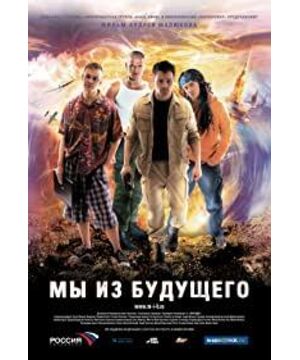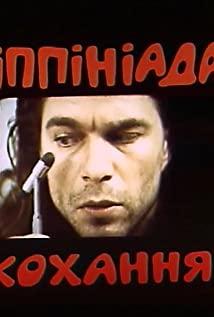In the first scene near noon, there were only me and another girl in the audience.
Speaking of which, this movie with a deciphered name is very surprising.
"Tell you, in Moscow in the 21st century, people tattooed with swastikas, gave Nazi salutes, and shouted long live Hitler." The Petersburg boy in the movie, after traveling to August 1942, greeted the dying Red Army in a German prison. Said the soldier.
Although his original intention was to make fun of his fellow skinhead. But in this situation more than 60 years ago, this is definitely a poor word.
Sure enough, the little soldiers of the Red Army overwhelmed their descendants and beat him wildly. After the experienced, grown, and enlightened skinheads separated the two, they quickly comforted the little soldier: "In Moscow in the 21st century, no one will shout long live Hitler.
" How can one's mind be brought down to earth.
In the end, the little warriors sang the Cossacks and the Budyonies and died heroically.
Such sensational details are reasonably distributed throughout the narrative structure of the film, and they often erupt when the audience's emotions are accumulated to a certain amount through various contradictions. In the play, weeping for heroes, weeping for heroism, and vindicating reality...
Such moving details also appear in the singing of the position before the general attack, and the sentence of the captain of the scout before the hand-to-hand fight, "Did we really win? When?"
They really know Crazy to believe the nonsense of "future people"? It is better to say that such a prophecy is the belief in their battle. Although the other side of the faith is the claws of Stalin and the Cheka, the Siberia that devastated the body and mind more than the front line, and the Gulag archipelago that disillusioned the faith of communism.
The protagonist of the film is a group of heartless young people in contemporary Russia who wander the Neva River all day long. At the beginning of the film, after selling the badges of the Great Patriotic War, they drove an off-road vehicle and roamed almost all the great landmarks of St. Petersburg-Hermitage, Naval Museum, Old Russian Navy Building, Church on Spilled Blood, Isa Church, Gold Lions Bridge - to them is nothing but a place of desire, not related to any great history. Among them, the skinheads believe that "Hitler should have joined forces with Stalin to fight the United States."
The irony of history has been reflected many times in contemporary Russian films. In Barabanov's best work "Brothers 2", the younger brother went to the black market to buy arms, and he couldn't stand the skinheads outside the warehouse: "My grandfather died in that war." The skinheads disagreed: "That was in the past. Salute to your grandfather."
After crossing, they met officers in the frontline camp during World War II. The officer asked: "Who are you?"
"St. Petersburg"
"What? That is?" The
boys realized that they had made a mistake. They only wanted to tell the Red Army about the bright future of television, Moscow skyscrapers, aerospace and space; no Willing to tell them about the disintegrated Soviet. Perhaps, about the disintegrated empire, in the eyes of the young man, it is not so sad. At least, they are very free now, and the three Baltic countries not far away have nothing to do with this empire.
This film makes people even more discover that the theme of time travel is not only for people to laugh, but also to complete the mission of preaching in a snot and tears. There was a very good tradition of propaganda films in the Soviet era, and it has provided huge nutrients for film creation. Even if this montage tradition is only technically meaningful, it is not useful for narrative today. However, this film still follows the Hollywood routine and the public aesthetics nourished by this routine, and has become a successful and good-looking educational film for young people in Russia today.
No, after finally swimming back to the 21st century, the enlightened skinhead picked up the stone, endured the pain, and began to wipe the swastika that once considered himself glorious as deeply shameful.
The film ends with the jeeps parked in front of another group of skinheads in front of the Kazan church after the tomb robbers have returned to St. Petersburg. A new "liberation" war awaits them?
——————————————————————————
Reminded of the three guys I saw on Red Square at night a few months ago. When they came to me, they suddenly stopped, gave the Nazi salute, and then walked away.
I thought that if I ran into them in the alley, I'd be utterly ruined.
I also hope that they can see this commercial film and think about it.
View more about We Are from the Future reviews










